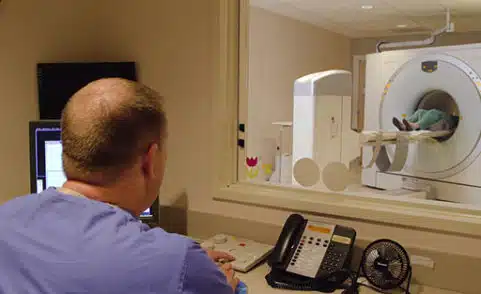
Coronary Artery Calcium Scoring (CACS) Warns of Heart Disease Risk
A five-minute test is giving patients valuable insight into their five-year heart disease risk. The procedure is called Coronary Artery Calcium Scoring – or CACS for short – and based on your age and gender, it can tell you how likely you are to get coronary artery disease in the next five years.
